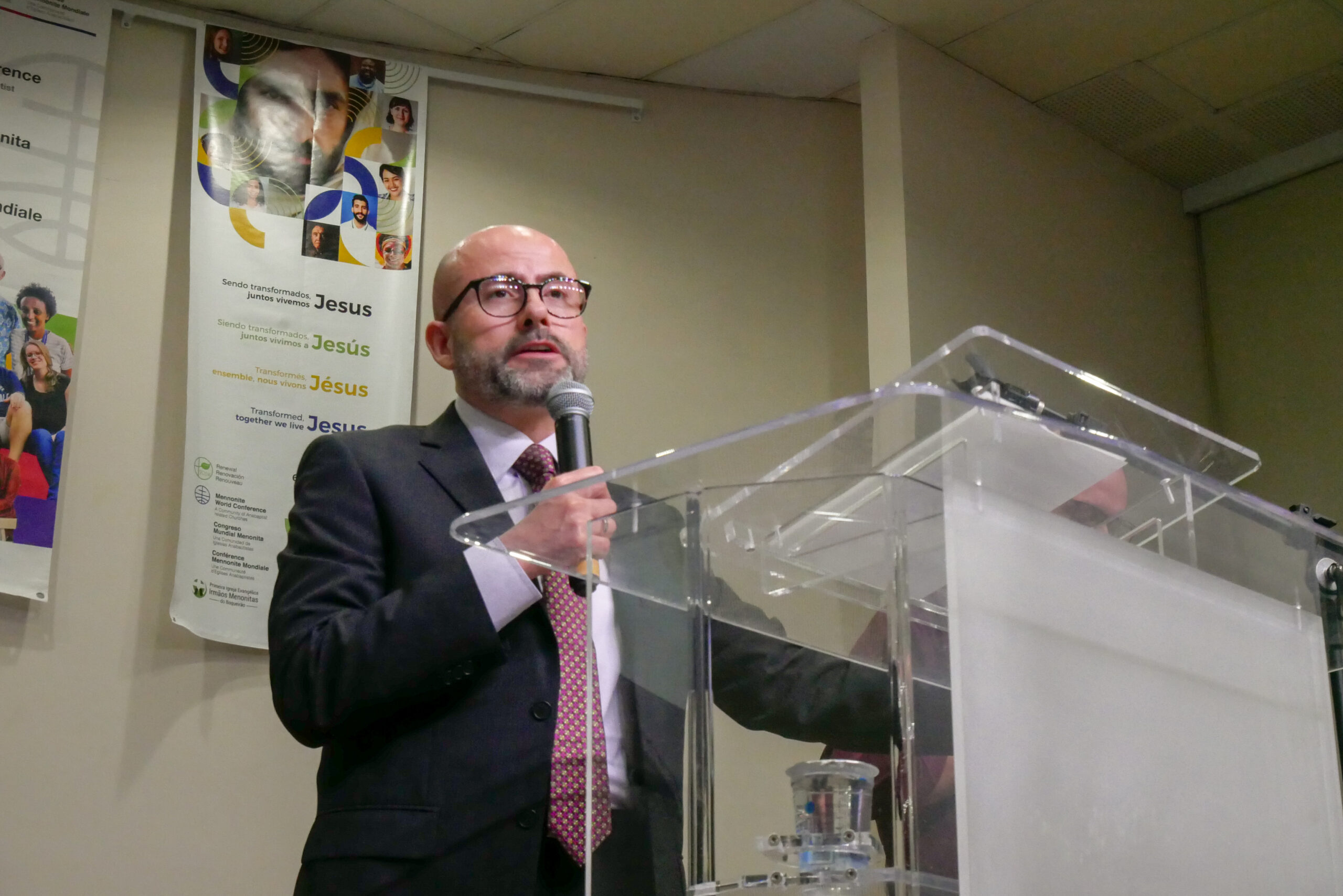“Being chair at the Conference of Secretaries of Christian World Communions is a role of service. It is a role where you serve other secretaries by preparing the agenda, logistics and materials for our meeting, and leading and facilitating robust discussions on matters critical to the global Christian church today,” says MWC general secretary César García. In November 2023, he was re-appointed as chair for the next two years.
The Conference of Secretaries, which has met every year since 1957 with a few exceptions, does not have programmatic goals and does not adopt resolutions. However, the diversity of leaders of Christian communions participating in that gathering facilitates the exchange of information; learning from each other; and nurturing fraternal relationships among worldwide churches.
“In the process of working with other secretaries and hearing each other, we start to build trusting relationships with other Christian communions,” says César García. “And by getting to know each other, we can start pursuing a particular area of interest for the most meeting participants.”
“In some cases, I bring the discussions that started in this annual gathering back to MWC. It becomes a seed of working together with some of these churches on a specific endeavour, In one instance, the general secretary of the Lutheran World Federation came to our General Council meeting to speak about his personal journey and the journey of the Lutherans in the process of being a world communion, a global church.”
“Some other times, I have been invited by other world communions to speak at their meetings, specifically to offer Anabaptist perspectives on the topics they are discussing,” says César García.
“One thing I have done in my role as chair is increase the times where we pray together for a particular situation. A frequent practice in our conversations is to explore how we can jointly respond to a crisis facing our churches or a geographic region.”
In addition to sharing perspectives and learnings, discussions in these meetings plant seeds of reconciliation.
For example, the official dialogue and process of reconciliation between the Lutherans and the Mennonites was envisioned several years ago by the general secretaries of both communions.
More recently, because of the meetings at the Conference of Secretaries’ annual gathering, MWC and the World Communion of Reformed Churches (WCRC) have discussed starting a similar process of reconciliation between the Reformed and Anabaptist churches.
“Living out our ministry of reconciliation is one of the things we want to do, especially leading up to the commemoration of the 500 years of the Anabaptist movement,” César García says, “The idea is to remember our history in the framework of our dialogues with the Catholic, Lutheran and Reformed churches and moving forward with a healed memory toward the call we have received to follow Jesus in our Anabaptist tradition.”
